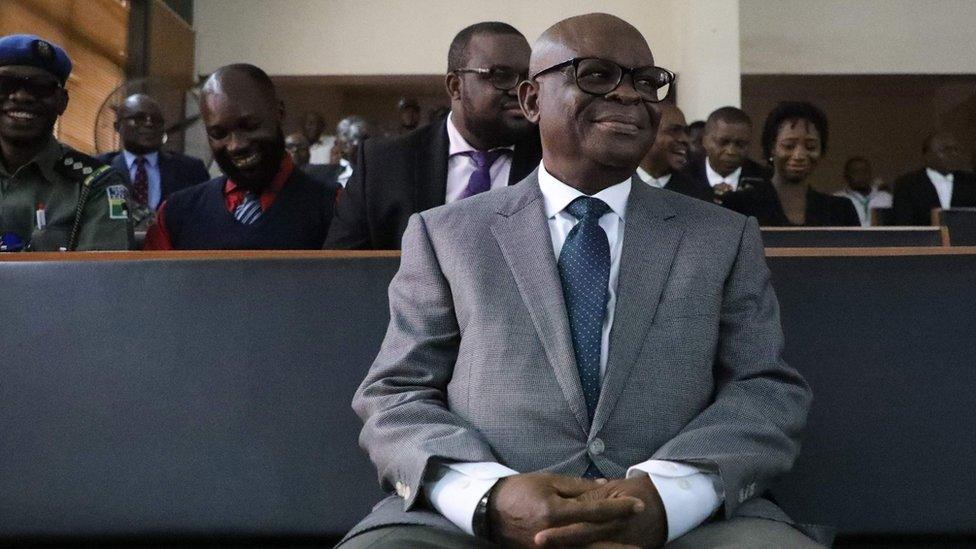Nigeria's top judge Walter Onnoghen to forfeit bank accounts
- Published

Walter Onnoghen is not allowed to hold public office for 10 years
Nigeria's Chief Justice Walter Onnoghen has been convicted of falsely declaring his assets after failing to reveal the money he held in foreign bank accounts.
The tribunal said he would have to forfeit the money in the five accounts.
His suspension over the charges by President Muhammadu Buhari in January, weeks before the presidential election, caused a political storm.
Mr Buhari was accused of meddling with the judiciary in case the outcome of the election was challenged in court.
The Code of Conduct Tribunal did not say how much money was in the five foreign accounts.
Justice Onnoghen has also been banned from holding public office for 10 years.
He has not commented on the tribunal's ruling.
Strong message
Jimmeh Saleh, editor, 大象传媒 Hausa
This is the first time a chief justice in Nigeria has been put on trial and convicted.
The Code of Conduct Tribunal was set up to ensure the highest standards in office in a country where public officials are widely mistrusted.
The law requires senior civil servants and government officials to declare their assets before taking office as a way to monitor wrongdoing.
This ruling sends out a very strong message that regardless of how high up you are, you are not untouchable.
Corruption is seen as a national problem and a lot of people believe that it is holding back the country's development.
In January, Atiku Abubakar - the president's main challenger in the election - called Justice Onnoghen's suspension "an act of dictatorship".
At the time of his suspension, Mr Buhari's spokesman said that trying to link it the elections was "illogical".
The president has pledged to fight corruption and was re-elected in February.
Mr Abubakar has gone to court to challenge the result of the election.
- Published27 February 2019